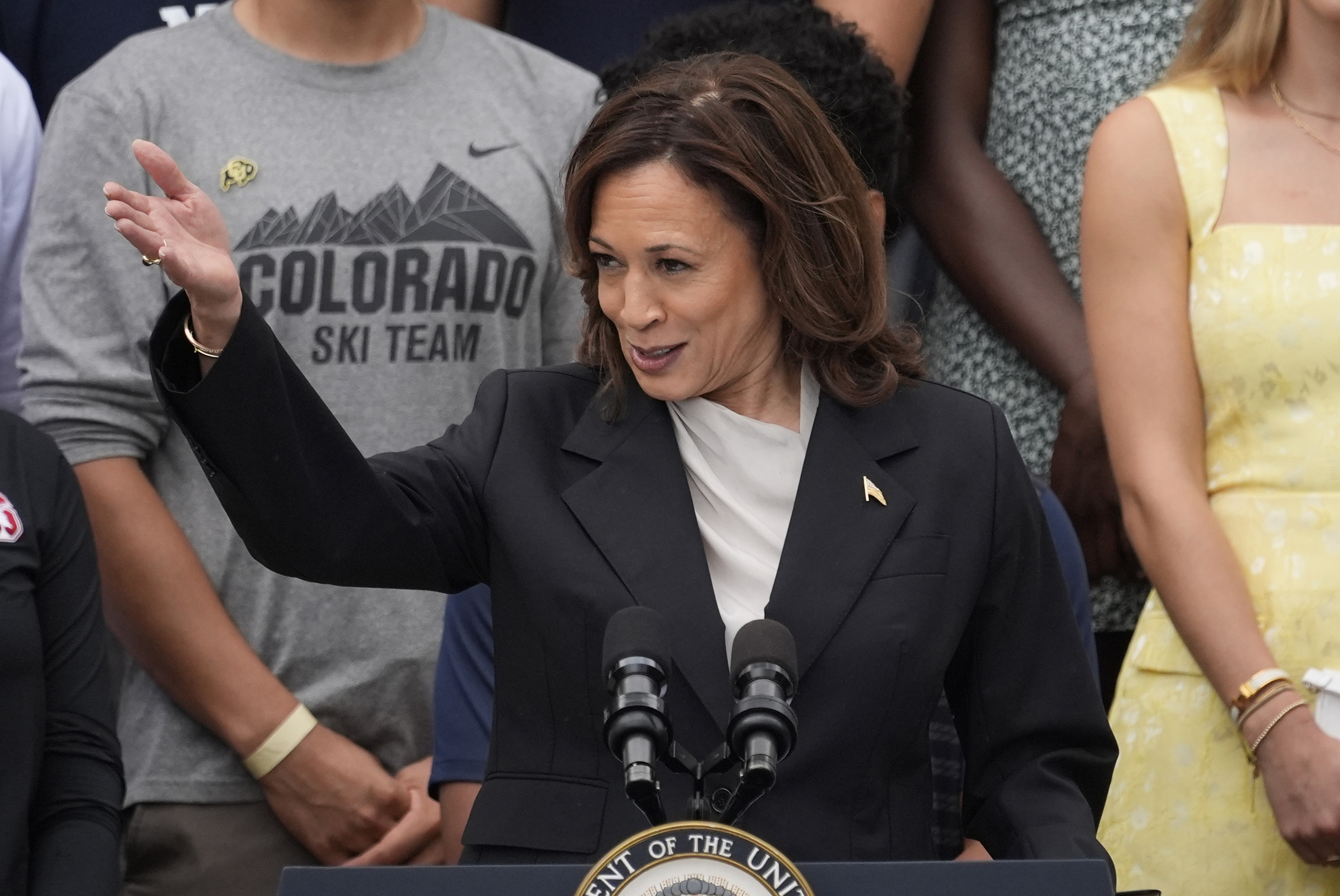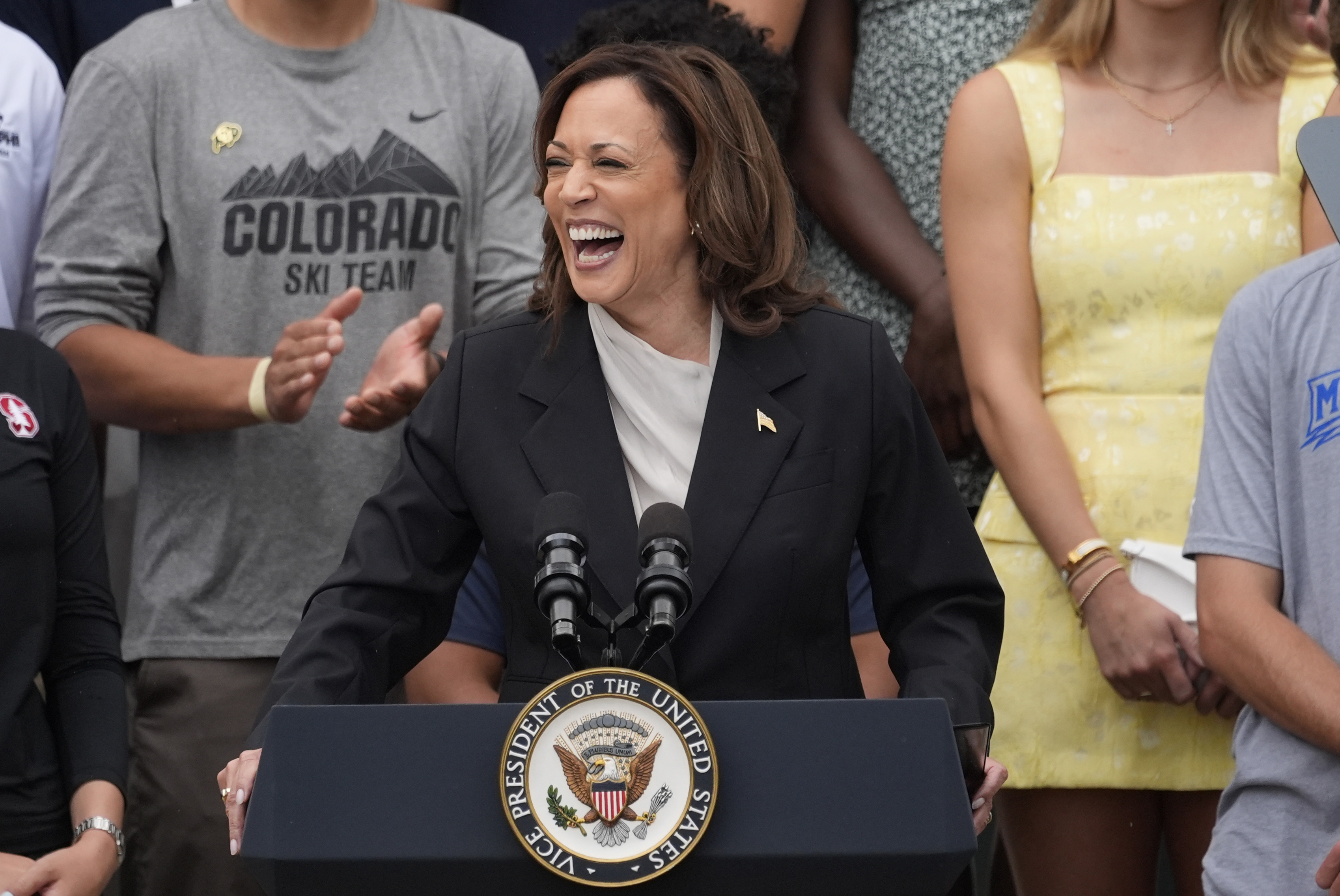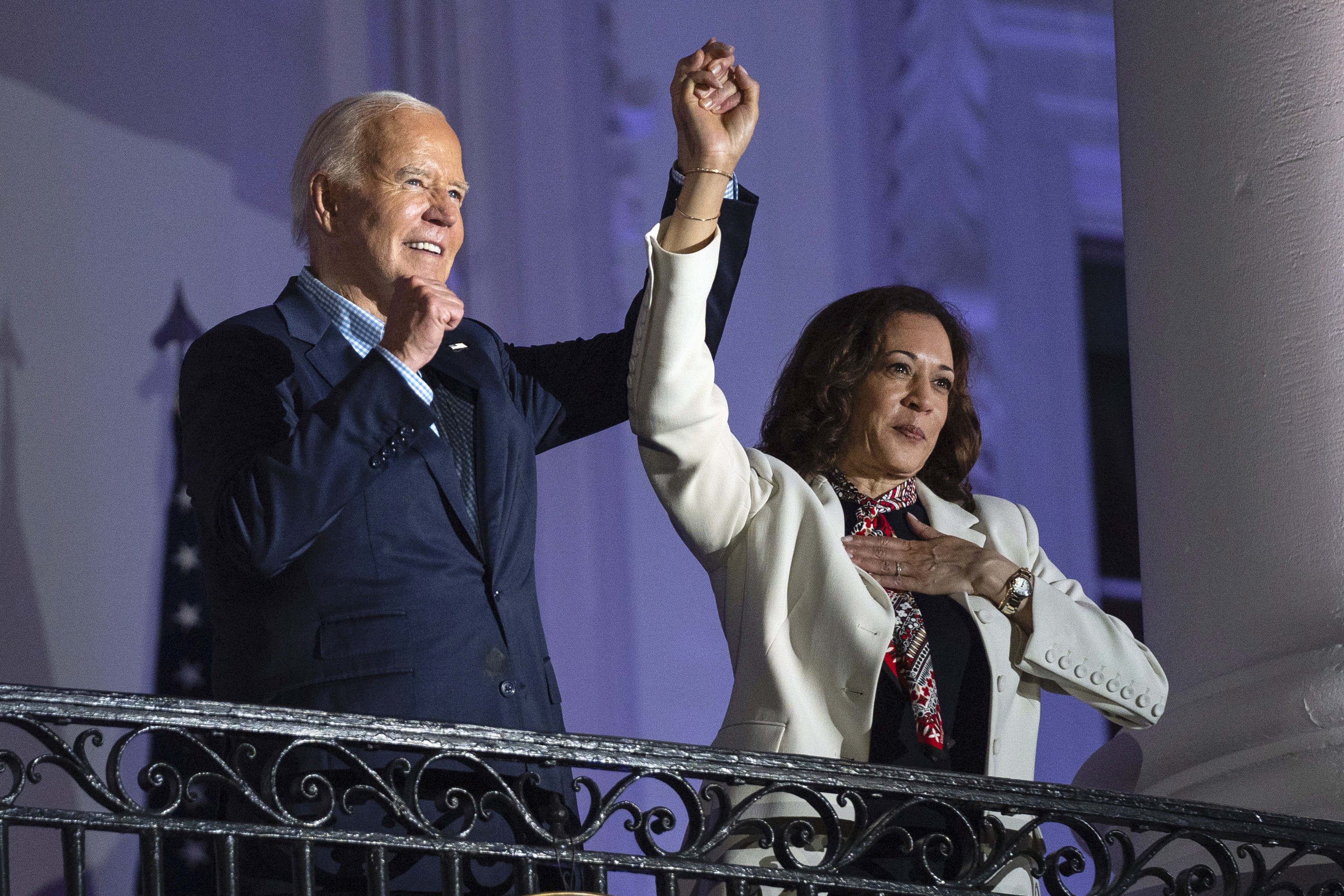US Vice President Kamala Harris has made her first public appearance after Joe Biden dropped out of the 2024 presidential race and endorsed her, paying tribute to the president's legacy, which she described as "unmatched in modern history".
In a brief speech on Monday morning (early Tuesday AEST), she said Biden wanted to be with her at an athletics event at the White House and was feeling "much better and recovering fast".
"In one term, he has already surpassed the legacy of most presidents who have served two terms in office," she said.
READ MORE: Inside Biden's unprecedented exit from the presidential race
It was her first public speech since Biden stepped aside amid concerns from within their party that he would be unable to defeat Republican Donald Trump.
Harris spoke about how she first met Biden through his son Beau when they were both working as attorneys-general – Harris in California and the younger Biden in Delaware.
"Beau would often tell me stories about his dad; he would talk about the kind of father and the kind of man that Joe Biden is," Harris told the assembled audience of National Collegiate Athletics Association champions, and many more watching around the world.
"The qualities that Beau revered in his father are the same qualities that I have seen every day in our president: his honesty, his integrity, his commitment to his faith and family, his big heart and his love – deep love – of our country.
"And I am firsthand witness that every day our president, Joe Biden, fights for the American people, and we are deeply, deeply grateful for his service to our nation."
Harris was looking to swiftly lock up the Democratic presidential nomination on Monday (into Tuesday AEST) as more Democrats fell into line behind her.
Shortly after Biden's endorsement on Sunday (early Monday AEST), senior democrats such as Bill and Hillary Clinton and Senator Elizabeth Warren threw their support behind her – although notably not Nancy Pelosi or Barack Obama.
Additional endorsements on Monday (Monday and Tuesday AEST), including Maryland Governor Wes Moore, Michigan Governor Gretchen Whitmer, Illinois Governor JB Pritzker and Kentucky Governor Andy Beshear, left a dwindling list of potential rivals to Harris.
More than 700 pledged delegates have told AP or announced that they plan to support Harris at the convention, which is over one-third of the pledged delegates she needs in order to clinch the nomination. Democratic National Committee rules most recently set 1976 pledged delegates as the benchmark to win the nomination.
Winning the nomination is only the first item on a staggering political to-do list for her after Biden's decision to exit the race, which she learned about on a Sunday morning call with the president. If she's successful at locking up the nomination, she must also pick a running mate and pivot a massive political operation to boost her candidacy instead of Biden's with just over 100 days until Election Day.
As Biden was deciding to withdraw from the race, Harris had multiple phone conversations with him, according to a person familiar who spoke only on background to more freely divulge details.
Harris was at the vice president's residence at the Naval Observatory in Washington. She was surrounded by family and staff and wore a hooded Howard University sweatshirt, workout sweats and sneakers, the person said.
She spent 10-plus hours on Sunday placing calls to more than 100 party leaders, members of Congress, governors, labour leaders, and leaders of advocacy and civil rights organisations. Harris told all that she was grateful Biden endorsed her upon leaving the race but she planned to earn the Democratic presidential nomination in her own right.
On Sunday afternoon, Biden's campaign formally changed its name to Harris for President, reflecting that she is inheriting his political operation of more than 1000 staffers and a war chest that stood at nearly $US96 million ($144.5 million) at the end of June.
It got bigger by Monday: Campaign spokesperson Lauren Hitt said Harris had raised $49.6 million in donations in the first 15 hours after Biden's endorsement.
In a sign that the Democratic Party was moving to coalesce behind her, Harris quickly won endorsements from the leadership of several influential caucuses and political organisations.
Notably, a handful of men who had already been discussed as potential running mates for Harris — Pennsylvania Governor Josh Shapiro, North Carolina Governor Roy Cooper and Arizona Senator Mark Kelly — also swiftly issued statements endorsing her.
Aides to Shapiro and Cooper confirmed that Harris spoke with them Sunday afternoon. In her brief call with Cooper, the North Carolina governor told Harris he was backing her to be the Democratic nominee, according to Cooper spokeswoman Sadie Weiner.
But former President Barack Obama held off on an immediate endorsement, as some in the party have expressed worry that the quick shift to Harris would appear to be a coronation, instead pledging his support behind the eventual party nominee.
West Virginia Senator Joe Manchin, who left the party earlier this year but considered re-registering as a Democrat to vie for the nomination against the vice president, told CBS News on Monday that he would not be a candidate.
– Reported with Associated Press






